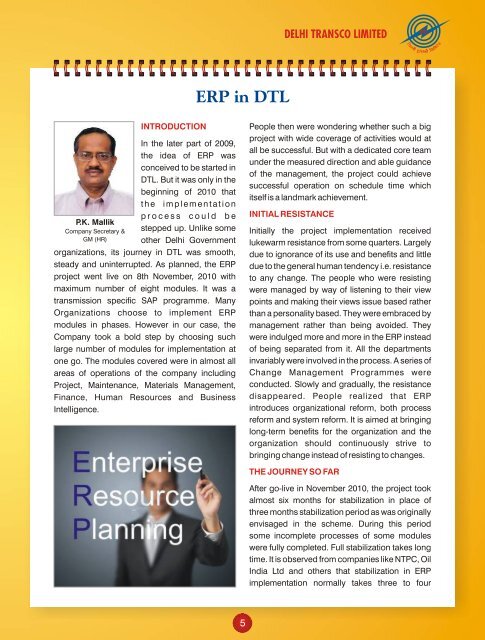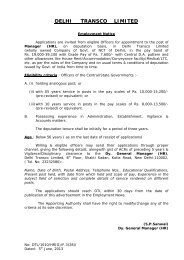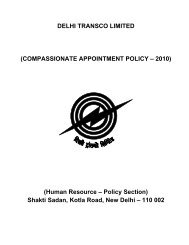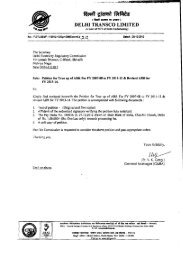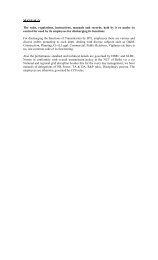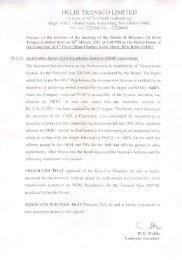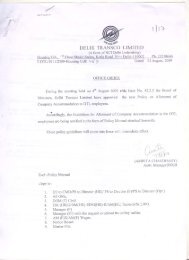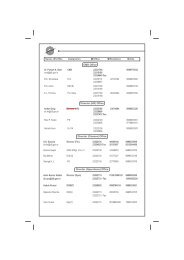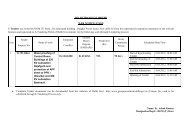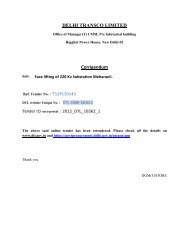January-March 2013 - Delhi Transco Limited
January-March 2013 - Delhi Transco Limited
January-March 2013 - Delhi Transco Limited
Create successful ePaper yourself
Turn your PDF publications into a flip-book with our unique Google optimized e-Paper software.
ERP in DTLP.K. MallikCompany Secretary &GM (HR)INTRODUCTIONIn the later part of 2009,the idea of ERP wasconceived to be started inDTL. But it was only in thebeginning of 2010 thatt h e i m p l e m e n t a t i o np r o c e s s c o u l d b estepped up. Unlike someother <strong>Delhi</strong> Governmentorganizations, its journey in DTL was smooth,steady and uninterrupted. As planned, the ERPproject went live on 8th November, 2010 withmaximum number of eight modules. It was atransmission specific SAP programme. ManyOrganizations choose to implement ERPmodules in phases. However in our case, theCompany took a bold step by choosing suchlarge number of modules for implementation atone go. The modules covered were in almost allareas of operations of the company includingProject, Maintenance, Materials Management,Finance, Human Resources and BusinessIntelligence.People then were wondering whether such a bigproject with wide coverage of activities would atall be successful. But with a dedicated core teamunder the measured direction and able guidanceof the management, the project could achievesuccessful operation on schedule time whichitself is a landmark achievement.INITIAL RESISTANCEInitially the project implementation receivedlukewarm resistance from some quarters. Largelydue to ignorance of its use and benefits and littledue to the general human tendency i.e. resistanceto any change. The people who were resistingwere managed by way of listening to their viewpoints and making their views issue based ratherthan a personality based. They were embraced bymanagement rather than being avoided. Theywere indulged more and more in the ERP insteadof being separated from it. All the departmentsinvariably were involved in the process. A series ofChange Management Programmes wereconducted. Slowly and gradually, the resistancedisappeared. People realized that ERPintroduces organizational reform, both processreform and system reform. It is aimed at bringinglong-term benefits for the organization and theorganization should continuously strive tobringing change instead of resisting to changes.THE JOURNEY SO FARAfter go-live in November 2010, the project tookalmost six months for stabilization in place ofthree months stabilization period as was originallyenvisaged in the scheme. During this periodsome incomplete processes of some moduleswere fully completed. Full stabilization takes longtime. It is observed from companies like NTPC, OilIndia Ltd and others that stabilization in ERPimplementation normally takes three to four5


